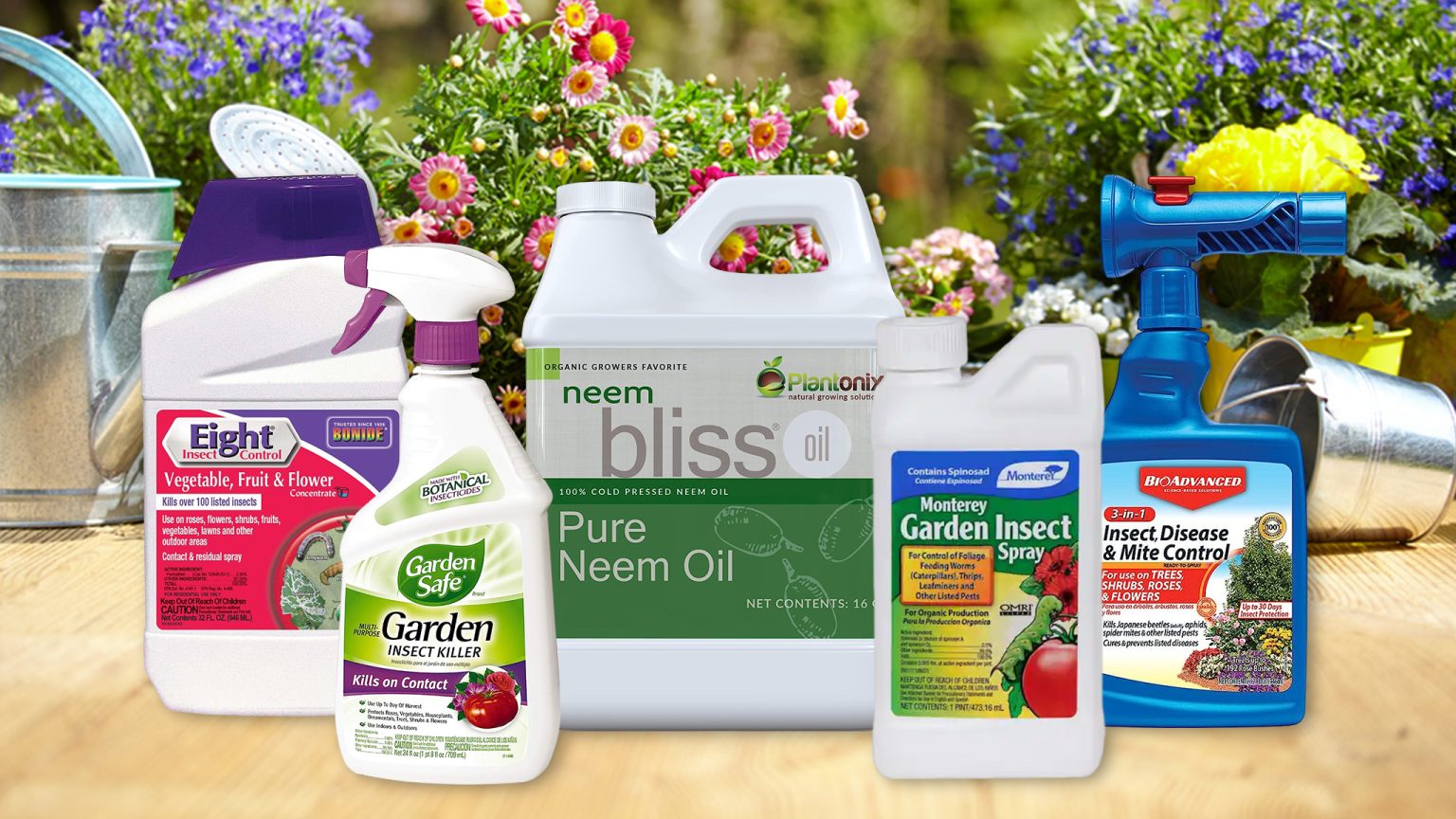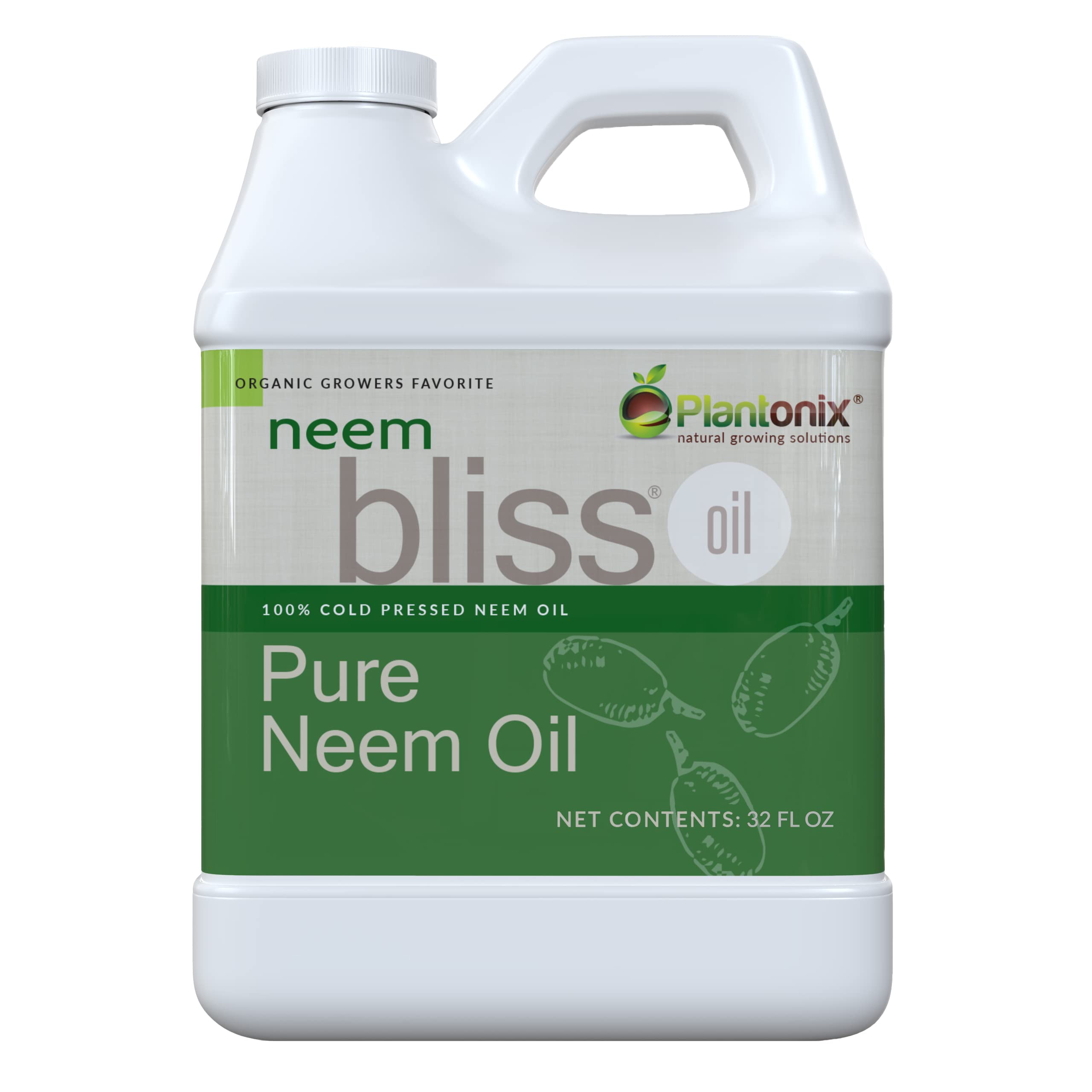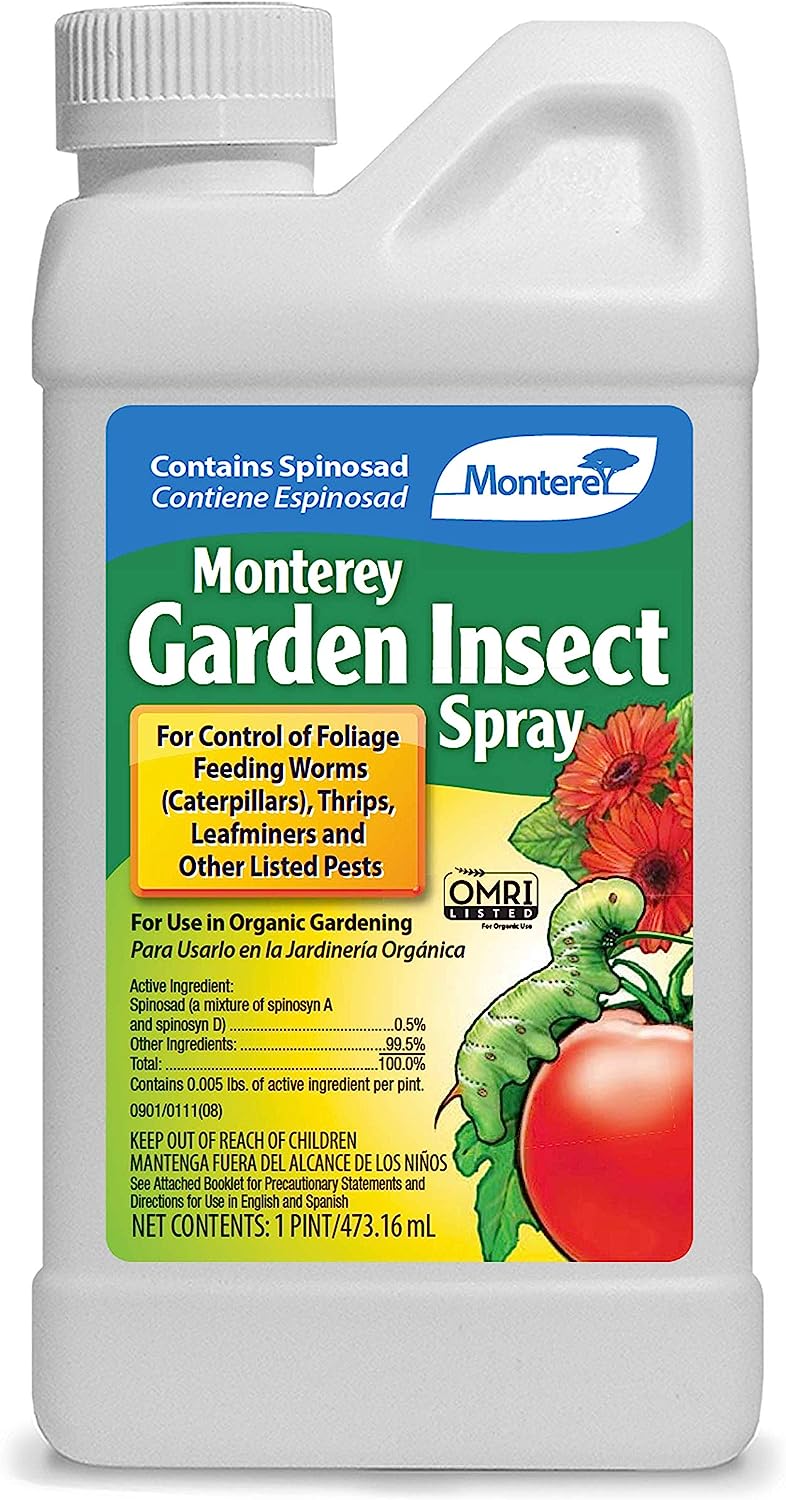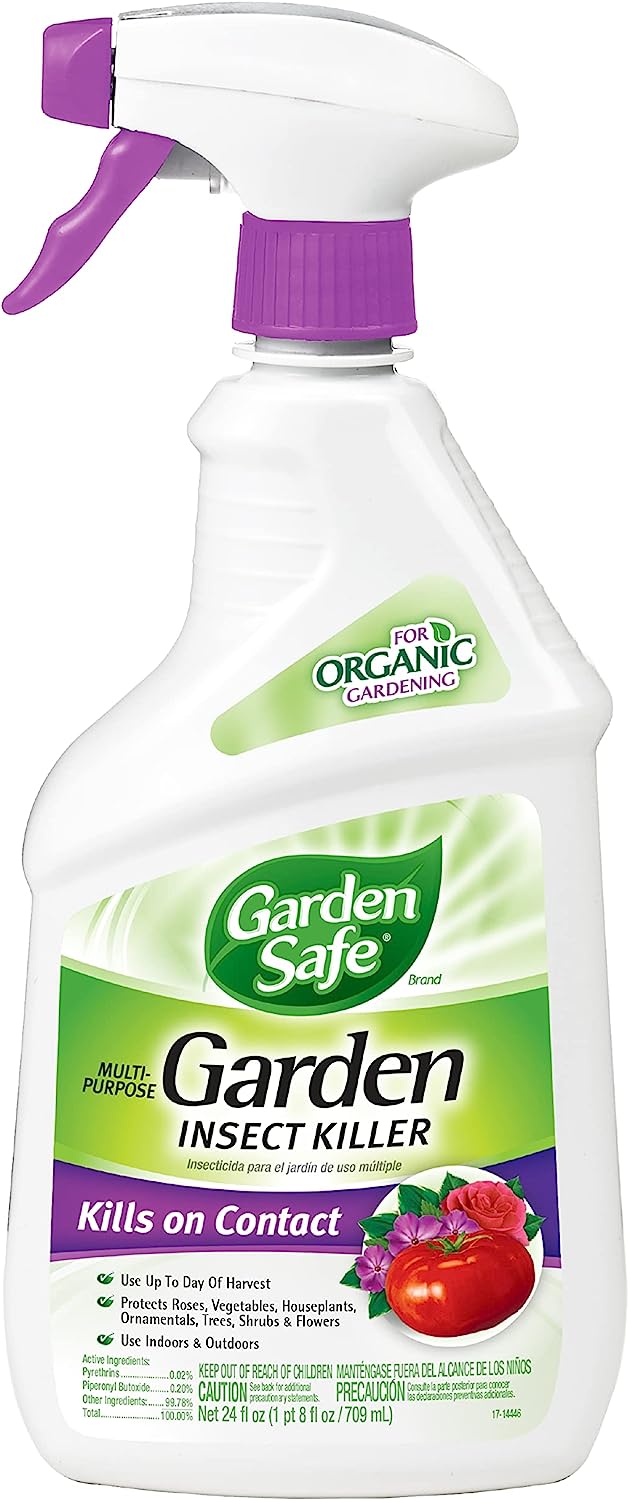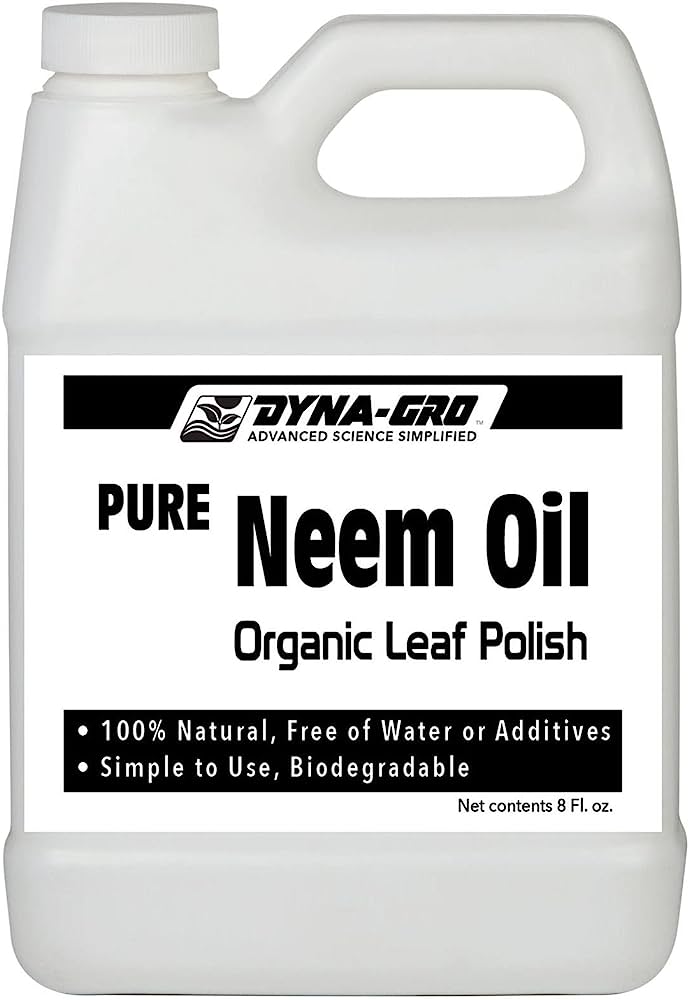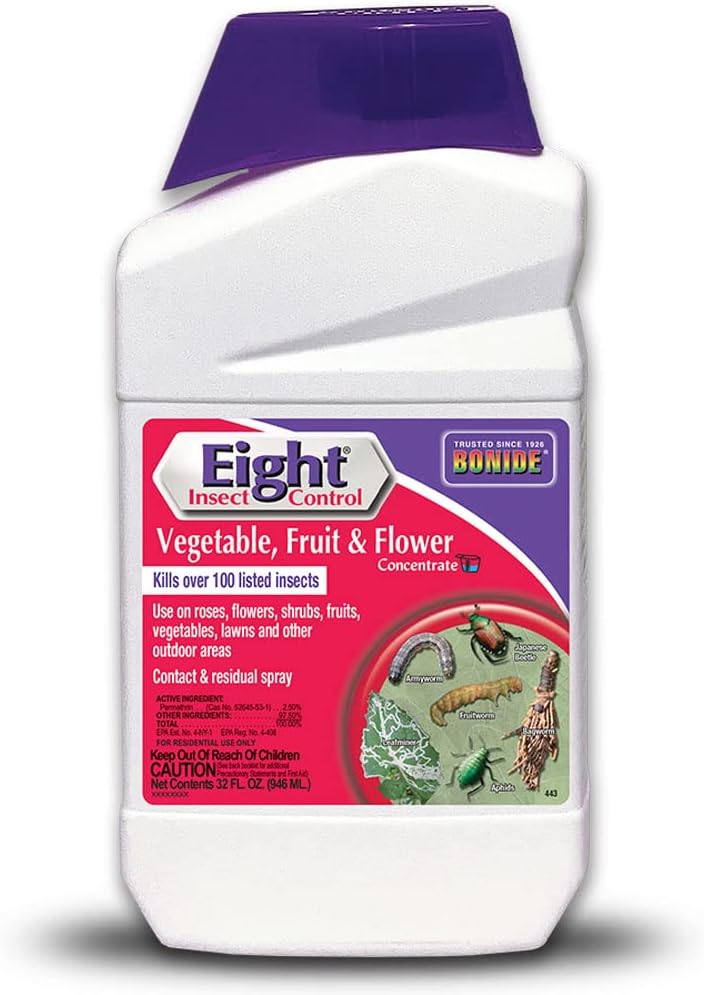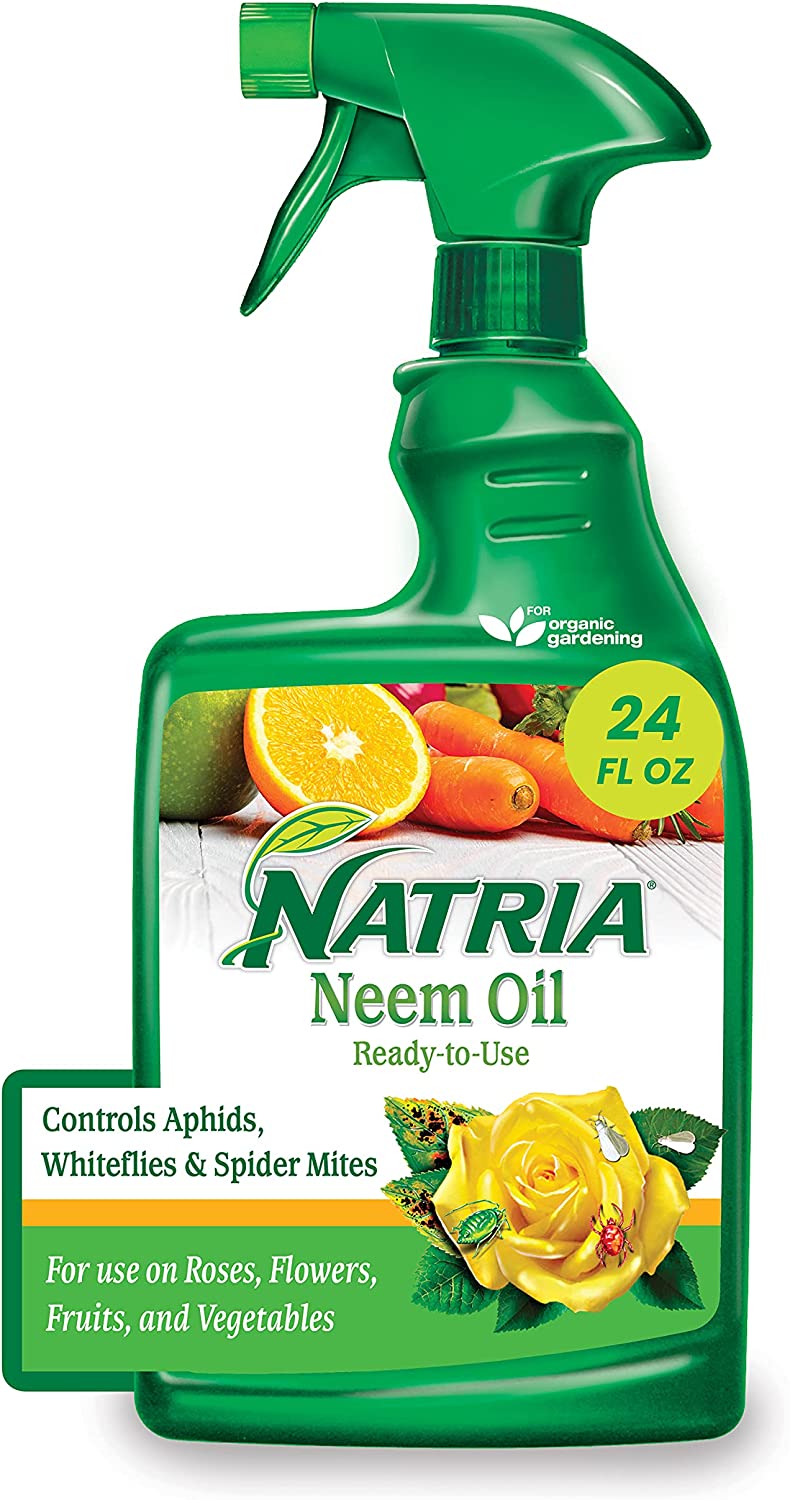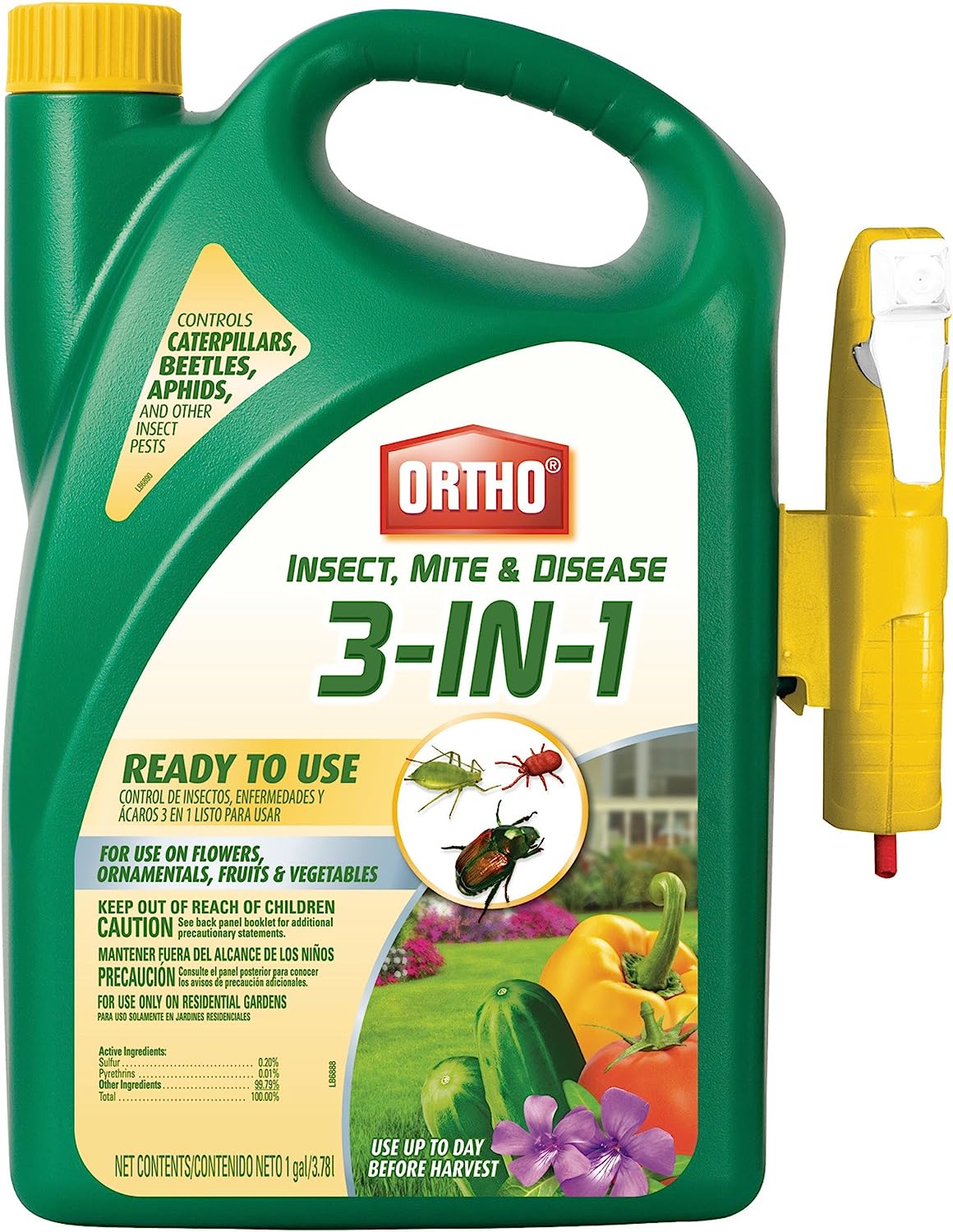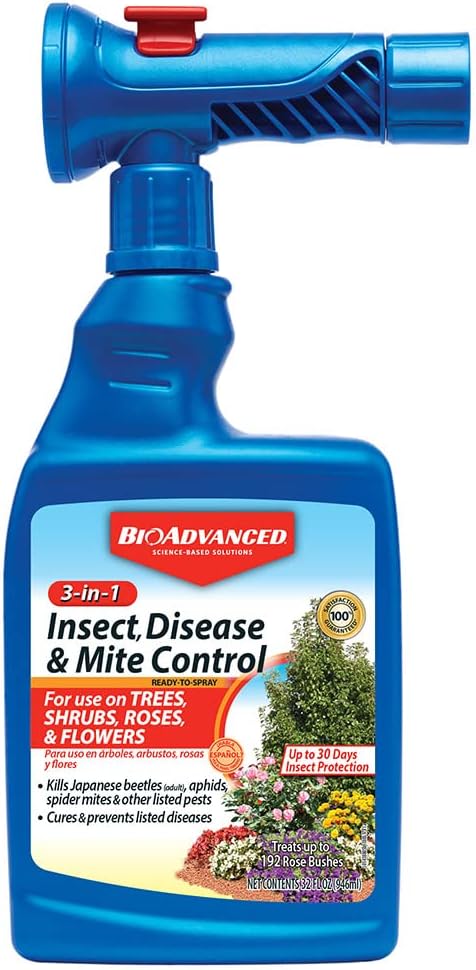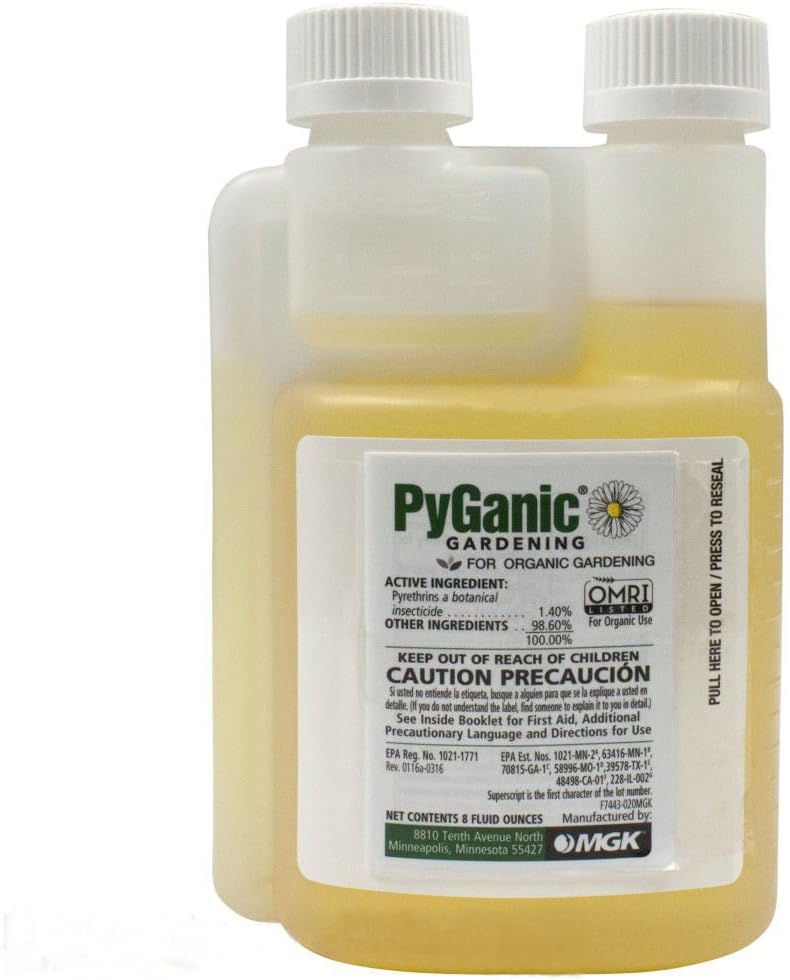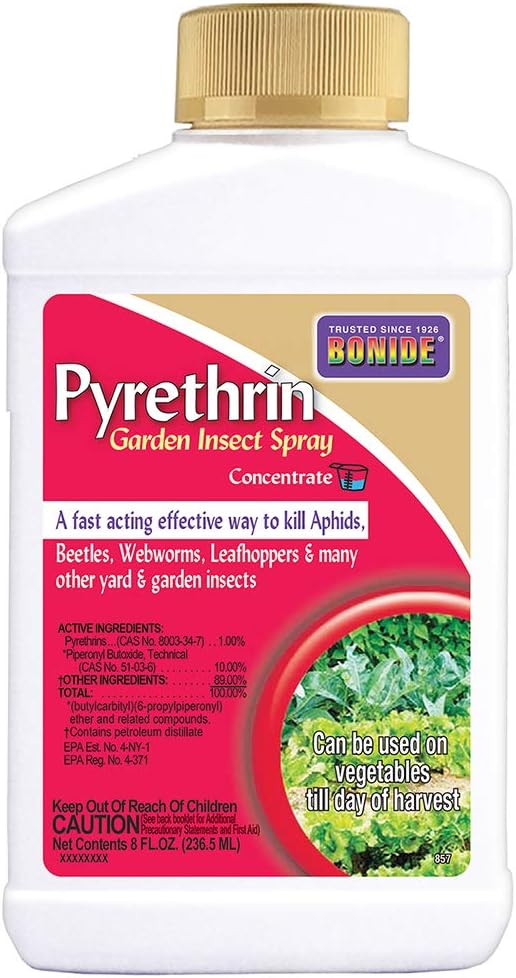It’s a pain to wake up one morning and find dozens of bugs already invaded your flourishing garden. You surely don’t want those freeloaders populating your valuable crops, do you?
Healthy plants are relatively immune to mild insect attacks and can care for themselves as long as they get enough nourishment. Unfortunately, even little changes in environmental conditions can result in bug manifestations in your luscious garden.
You’ll be relieved that many insecticides are available, and these solutions can assist you in killing harmful bugs without compromising your beneficial plants. Read on to find out our top ten picks on the best insecticides for your vegetable garden.
Top 10 Insecticides for Green Garden Reviewed
This Plantonix product contains only cold-pressed neem seed oil, and it offers pure neem oil extract and can be easily diluted to suit your specific needs. The manufacturer even claims that this product is safe for your skin, hair, and nails.
According to the company, the oil is extracted without using heat or chemical compounds. This is done to keep the neem oil’s pure quality and form. Furthermore, the cold press procedure preserves the oil’s key nutrients and active ingredients.
This solution works well on both indoor and outdoor plants. It includes a high concentration of Azadirachtin, which repels pests effectively, and only a few drops of it are required to keep your garden pest-free.
To use as an insecticide, combine 1 1/2 teaspoons of neem oil with a quart of water. Add approximately 1/2 teaspoon of gentle dish soap liquid to the solution.
Make sure to mix the solution thoroughly. Also, avoid mixing outside in the winter because the neem oil may solidify at lower temperatures. If the oil unexpectedly solidifies, place the container in warm water for a few minutes.
Furthermore, Plantonix neem seed oil is available in volumes ranging from 16 oz to 2.5 gals. Plantonix also offers a variety of organic neem products that can be useful to your plants.
1st Runner Up
This Monterey pesticide is designed to combat caterpillars, leafminers, borers, fire ants, and other pests while emitting no odor. It is a Spinosad insecticide that is created through fermentation.
Spinosad is one of the few insecticides that are safe for pets and efficient against many pests, and it kills only particular bug species on contact or through digestion.
This product is OMRI-listed, which means it is appropriate for organic gardening and is suitable for vegetables and decorative plants, such as apples, broccoli, and asparagus. It can also be used to treat mites in poultry and their coop.
To use as an insecticide, combine four tablespoons in a gallon of water. Fill a spray bottle full of the mixture and apply it evenly to the upper and lower portions of the leaf surface.
One wonderful thing about this product is that it is not harmful to beneficial insects such as bees and ladybugs. And according to internet user reviews, buyers appear pleased with the product. Many people praise it for its effectiveness in dealing with insects and bugs.
Garden Safe’s professionals are well-known for assisting flowers, fruits, and vegetables in surviving until harvest. Many organic gardeners have trusted them to keep pests and diseases at bay.
It is a ready-to-use solution, so you can immediately spray it on your plants. According to the manufacturer, this solution will efficiently kill hornworms, aphids, fruit worms, and over a hundred other insect species.
This product is really simple to use. Your only responsibility is to ensure that the plants are not soaked during application to minimize runoff contaminating neighboring soil. Also, keep children and pets away from the treated area until it has dried.
It is also easy to store the product. Once you’ve used up all the liquid, place the container in the garbage for recycling. However, never pour any leftover solution down the drain because it is hazardous to aquatic life.
This is another item on the list that contains cold-pressed neem seed oil. Dyna-gro, a well-known agricultural company with a lengthy history, manufactures it.
This product differs from others in that it keeps pests away from the plants and gives shine and a glossy aspect to the foliage. However, the maker advises not using it in direct sunlight to avoid burning the leaves.
You can use the neem seed oil as a spray solution. Add one and a half tablespoons of oil to each gallon of water. Remember to add mild dish soap as an emulsifier to ensure a successful mixture.
Dyna-gro also has an emulsifier, which works well with neem seed oil. Once you successfully mix it, the solution will turn yellow and have a consistency similar to milk.
According to online reviews, buyers are generally happy with the Dyna-Gro NEM-008. According to many of them, it does not immediately kill bugs. Instead, some find that bugs are still present around the plants, but the damage to the plant leaves is minor.
The Bonide EIGHT is a highly-rated insecticide intended to treat any insect manifestation in your lawn. It is intended for use on all types of plants, including green vegetables and productive fruits, as well as indoor plants and ornamental flowers.
One outstanding feature of this product is its efficiency and longevity. It kills pests soon after spraying and will remain on the plant’s surface for up to four weeks to prevent re-infestation.
The one we have on this list is the concentrated version. Thankfully, Bonide also has a ready-to-use variant, so those who don’t want to deal with the hassle can still use this product.
To use the solution as an insecticide, combine one cup with eight ounces of water. Before applying, ensure that the lawn has been adequately watered. If you have a severe pest infestation, a second application within two weeks may be required.
The treatment can also be used to manage fire ants in your home. Mix two ounces of the solution with three gallons of water, and pour the fluid gently over the mound and its surroundings.
Horticultural oil, like insecticidal detergent, binds to the bug and provides direct control after contact. The Natria 706250A contains neem oil mixed in a mixture that is easy to spray in a delicate mist.
The product is designed to work with various plants, including nuts, berries, vegetables, and delicate flowers. This neem oil works best on slow-moving pests like scales and mealybugs.
The product is ideal for immediate application. You can apply this product the same way as other ready-to-use insecticides, and it can even be used until harvest without harming crop quality.
Aphids, spider mites, caterpillars, and midges are some of the pests that this product can control. If you want to treat a fungal infestation, follow the same application guidelines, but try to treat the fungi completely.
Because it contains no synthetic chemicals, this Natria product is safe for children and pets. But since the solution is pre-mixed, some pests may require numerous applications before eradication.
This is yet another popular insecticide for vegetables on Amazon. This 3-in-1 product can help defend your home against aphids, mites, caterpillars, powdery mildew, rust, and other invaders.
Attach the included sprayer to the bottle and shake thoroughly to activate the solution. Remember that this is a ready-to-use mixture, so do not dilute it with additional water. The solution should then be applied gradually to all plant sections, particularly where pest manifestation occurs.
Spray the solution early in the season to address a fungal manifestation. Spray evenly, paying special attention to young sprouts and the undersides of leaves. To achieve the best effects, reapply once a week after the rain.
One thing to keep in mind about this product is that its active ingredients include sulfur and pyrethrins. And you may even apply it up to a day before harvesting to keep parasites and insects away from your valuable fruits and vegetables.
Ortho Insect Mite & Disease gets positive feedback from customers. However, some consumers have complained about the sprayer since it is difficult to use and prevents them from using it conveniently.
This BIOADVANCED has three beneficial properties in one package. It combines the active chemicals imidacloprid and tebuconazole, which work together to make the solution powerful and long-lasting, extending up to three months after application.
This ready-to-use treatment will protect your fruit and vegetable crops from pests such as Japanese beetles, cutworms, and hornworms. However, to safeguard valuable insects such as bees, strictly follow the label requirements.
It also prevents diseases like leaf spots and petal blight. Please don’t be concerned about runoff because the product’s creator created it to be absorbed by the main stem, taken up internally by the roots, and shielded from all pests from within.
Many customers have used this product for many years, therefore it is not surprising that it has received positive feedback online. Many appreciate how simple the spray bottle is and how quickly the solution kills pests.
This MGK product is intended for use with green vegetables, nut trees, and beautiful flowers. This pesticide is made from botanically derived active components and contains pyrethrin, which is extremely effective against pests such as aphids and white flies.
If you are an organic farmer, you should use this product because it is OMRI-listed. Use it whenever insect manifestation arises or during the growing season. Because it degrades naturally in the sunshine, you can use it early in the day before harvesting.
This MGK pesticide has low toxicity; therefore, it will not affect the beneficial earthworm. To use, dilute one ounce of the solution with one gallon of water. The mixture can treat up to 1000 square feet of the ground.
This is a concentrate product from Bonide that contains the active component pyrethrin. It is intended for vegetables such as asparagus, peppers, azaleas, and many more.
It can quickly and effectively eliminate pests like beetles, leafhoppers, and other yard insects. This product’s beneficial pyrethrin kills insects by particularly attacking their nervous systems. However, because this does not kill carpenter bees, it should not be used on blossoming crops.
This substance dissolves easily in water and can be applied with a sprayer. Also, because it is a contact pesticide, it must come into direct touch with the bugs to be effective.
How to Pick Insecticides for Vegetable Gardens
If you have a serious pest infestation in your vegetable garden, you will also require a serious insecticide. However, insecticides come in a wide range of forms, and not all are created equal, so you must understand the things to consider when selecting one.
Target pests
Most manufacturers create all-purpose pesticides that can kill hundreds of insects at once. On the other hand, most vegetable crops are only affected by one or two predators, and dozens of other species can benefit the plants’ development.
This is why you should first discover what kind of pests are infesting your garden. For example, if you discover Mexican beetles crowding your bean plants, you must first determine which insecticide is effective for that type of bug.
Organic vs. chemical
Many garden experts regard organic insecticides as the best solution for removing pests in vegetable gardens. This is because these solutions can successfully kill pests while causing minimal harm to the plant. Another great thing about them is that they are not toxic for humans and pets.
Get your hands on an organic insecticide whenever possible. Many of today’s most popular organic insecticides contain pyrethrum derived from chrysanthemums, and it is particularly effective in killing its target and disappears quickly from the soil.
However, this does not mean you should always avoid using chemical insecticides; you can still use them if you have persistent pests in your garden. However, remember that you must strictly adhere to the usage directions.
Application
Insecticides are available in concentrated and ready-to-spray versions. Concentrates are normally less costly but must be diluted with water first. The latter option, on the other hand, saves you time because it may be applied to the plants right away.
Longevity
Many bugs and pests are not affected by insecticide during their early stages of development because the egg protects them. This allows them to resurrect within a few weeks of insecticide application. As a result, the insecticide you select must be able to protect your plant for as long as possible.
Insecticide safety tips
In general, insecticides have two types of action: contact and systemic. Contact insecticides remain on the plant’s surface, whereas systemic insecticides penetrate deep into the plant’s vascular system. Whatever pesticide you use, there are some safety measures you should take.
1. Decide if you need to use the insecticide
In terms of severity, each pest situation is unique. Anything that cannot be dealt with in manual ways, such as cleanup with your fingertips or a hard blow from the garden hose, may demand additional strength from the insecticide.
Light infestations of plants are often easily handled without the use of an insecticide. For example, to get rid of spider mites from your cauliflower, rinse the plant in your bathtub.
In most cases, an insecticide should only be used as a last resort in cases of great urgency or massive infestation. Bugs or ants swarming all over the vegetable bed clearly show an infestation that requires urgent insecticide treatment.
2. Pick the right insecticide
As previously stated, before selecting your poison, understand what type of insects you are working against. Most insecticide labels explicitly specify what the product is intended to kill. Some treatments may only tackle several types of insects, while others address a wide range of pests.
Next, consider the formula and what you’ll feel most comfortable with. Is it ready to use, or does it need to be prepared? If you research the pests, you’re fighting, you can make your organic insecticide out of things you already have in your kitchen.
3. Don’t use too much insecticide
Remember that insecticides, even organic ones, can be harmful if used excessively. The idea here is to use only when required and just enough to eliminate insect invasion.
If you need to figure out how a product will affect a plant, test it on a single branch first. It should be noted that some insecticides may require more than one dosage. So, understand how many applications are required and wait for the recommended length of time between each.
When spraying insecticide, wear appropriate protective apparel, such as goggles and thick rubber gloves. If insecticide goes into the eyes, rinse them immediately with seawater and contact Poison Control to decide the next steps.
4. Know when to use the insecticide
Regarding pesticides, timing is crucial because many insects only respond to insecticides at specific life cycle periods. Read the labels to determine the ideal times to use the product.
Strong winds and heavy rain may also have a role. Avoid applying insecticides before a downpour to prevent chemicals from leaking into the soil. Also, avoid spraying insecticides during strong winds to avoid harming other healthy plants.
5. Safely store and dispose of the insecticide
All organic and chemical insecticides must be kept out of reach of children and pets. More importantly, adhere to label instructions for safe insecticide disposal. Contact your local government to see whether they have a program for collecting domestic hazardous material.
| Pros | Cons |
| Very cost-effective. | Will not immediately kill. |
| Easy to dilute. |
The Dyna-Gro pesticide was chosen because it is a versatile bug killer that is both cost-effective and simple to use. It is manufactured by a reputable company and combines three functions (fungicide, miticide, and insecticide) in a single package.
The product is suitable for organic farming. It will eliminate pest manifestation in your garden if you know when to utilize it. Spraying in early spring before the beginning of a typical pest attack delivers the best results.



